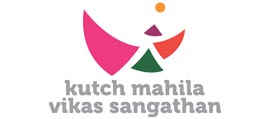Empowering Panchayati Women-Sushasini
Within a short span of its existence, Sushasini has been able to extend its outreach to around 600 villages in Kutch, working independently as well as in collaboration with other local NGOs, CSOs and CBOs. This has facilitated integration of women in mainstream political processes at the village PRI level and thereby engendering governance and village development and in building solidarity and collective strength for public advocacy on gender issues in governance.
The Manchs have initiated collective actions, both at the block and district levels, by taking up cases related to issues of WERs and other developmental issues. Some of these related to accessing benefits under various developmental schemes, provision of facilities in the villages like water, roads, health etc. and also undertaking newer issues like land/property rights for women, violence against women etc. The Manch members have thereby established linkage between gender sensitive development and good governance[1].
Assumption that women representatives would bring about inclusive development has also come true to an extent. In many instances women representatives of Gram Shasini Manch have also been sensitive towards the developmental needs of the most vulnerable and marginalized sections of the village community and have engaged with cases that required intense support[2].
Sushasini has also succeeded in mainstreaming the issue of women’s political participation in other CBOs, CSO/NGOs and other like-minded organizations.
[1] An adolescent girl started with her menstruation while in school. Not carrying a sanitary napkin on her person, she repeatedly sought permission from the male teacher to go home, which was denied. Finally during the break, the girl had to rush home feeling very embarrassed, having to walk all through in stained clothes. When this was related in one of the Manch meetings, the women decided to get a resolution passed in their Panchayats to provide sanitary napkins for girls in schools. Such resolutions were passed in 27 villages.
[2] Most Manch members actively work for ensuring that the most vulnerable population get the advantage of individual benefits schemes like the Widow Pension Scheme, Old Age Pension scheme, Kunwarbai nu Mameru, Scholarships for poor children etc. Some Manch members have also become active members of the Social Justice Committees in their Panchayats and have begun advocacy on issues (both operational and substantive).
Pages: 1 2
